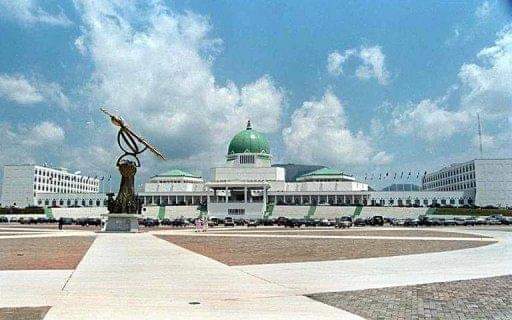
The recent revised 2020 budget proposal of the federal government, as sent by President Muhammadu Buhari to the National Assembly, did a good job of discounting the value of good health and education. The Basic Health Care Provision Fund, which is for all the primary healthcare centres in the 774 local government areas in the country, was slashed by N44.4 billion to N25.5 billion, a decrease of more than 42.5 per cent. In like manner, the Universal Basic Education fund was cut from N111.7 billion to N51.1 billion, a 54.2 per cent decrease. What this signals is that the young in Nigeria are not a part of Nigeria’s future. Within the same budget amendment, the National Assembly is set to be renovated for N27.7 billion! Where are our priorities? When will we learn that the best investment a country can make in its people and its future is education?
Consistently, government spending as a percentage of GDP on the health and education sectors continues to decrease. Nigeria can never take a leap into the league of developed nations if the governments does not recognise the urgent need to fund and improve these two sectors. The future of Nigeria depends not on oil or solid minerals, but on human capital, which is predicated on how well the educational system prepares students to deal with the world. Young people in Nigeria will only be able to compete in the global marketplace, if they are competitive through good education and have requisite skills. As I have stated here in the past, the state of any country’s current education, will be the state of its economy in twenty years. There are no short cuts to it.
Dr. Jocelyn Elders, former American surgeon general said it best: “You can’t educate people that are not healthy. But you certainly can’t keep them healthy if they’re not educated.” As a country, we have to appreciate the status of health and education as public goods. About it is time for policy makers to see basic education not only as a right, but also a duty. As a nation, we must put in place the necessary resources, in the right places, for the health and education of Nigerians. Education is the best recipe for reducing poverty, improving health outcomes, ensuring better livelihoods, more social stability and growing the economy/income across socio-economic strata. As we can see all around us, the results are tragic when the health and education of citizens are not placed at the highest level of the government pyramid. When is the government going to learn that there is absolutely need to get our priorities right?
Every budget cut, along with a weak regulatory environment, allows private actors to fill the created vacuum. Privatisation is good, but without strong oversight it becomes an all-comers’ affair and that is what we have seen in the country. Privatisation in the education and health sectors has not led to efficiency nor improved quality. Instead, it has pushed the poor out and promoted greater inequality. Underfunding education isn’t a good idea at any time, but it is more perilous now. Cutting the education budget puts the nation’s long-term economic potential in jeopardy. Like education, funding health should be seen as a social goal. The health of a nation has a direct impact on human capital development and productivity. Crucial investments in health not only save lives, they are also investments in the economy. Again, from someone who has seen it all and has worked at the nexus of medicine and education, Dr. Elders, “I feel that we can’t educate children who are not healthy, and we can’t keep them healthy if they’re not educated. There has to be a marriage between health and education. You can’t learn if your mind is full of unhealthy images from daily life and confusion about right and wrong.”
The excuse that the fall in oil prices necessitated the budgetary cuts for education and health is self-negating, when other wasteful spending are left in the books. We know that the oil price fell precipitously due to low demand, as the pandemic has been sweeping across the entire planet. The lack of fiscal discipline at a time of economic uncertainty like this is confounding. Must the National Assembly be renovated at this time? What is the national urgency in the renovation of the National Assembly complex, in comparison to the health of Nigerians during a pandemic or the ballooning population of out-of-school children, which the coronavirus pandemic is likely to exacerbate?
The cuts show us that many of our educational and elected leaders are not paying attention to global trends nor are they learning from past mistakes. They seem to have ventured too far into the weeds on what is important to the development of the country. From birth to career, the education and health of Nigerians must be our highest priorities for the rest of the 21st century, if we are any serious or desire change. It is important for our collective future to elevate the health and educational welfare of the young population as the number one policy thrust. Indeed, progress in many sectors of the economy may be moot, without a lot of investment in basic education and primary healthcare. While other sectors need not be neglected, we need to understand that it is these two sectors that will determine our long term progress.
Bámidélé Adémólá-Olátéjú a farmer, youth advocate and political analyst writes this weekly column, “Bamidele Upfront” for PREMIUM TIMES. Follow me on Twitter @olufunmilayo













